Technology
10 Top Autonomous Vehicles
Published
9 months agoon
By
Kai Kelis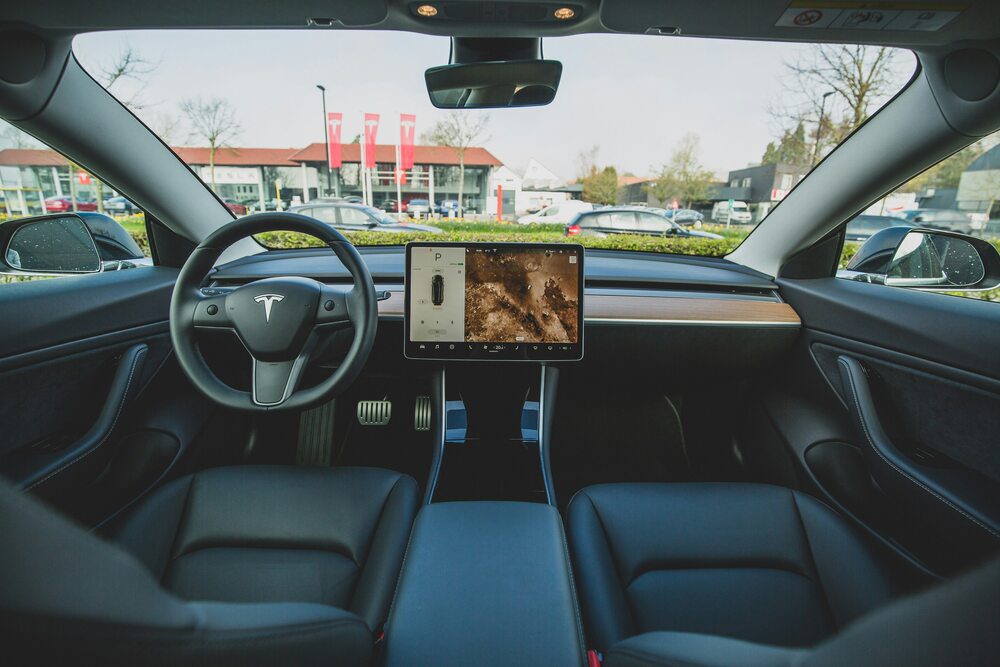
Self-driving cars are convenient and safer than non-autonomous cars. Most of these cars are trained on machine learning and can safely bring passengers from point A to B. When it comes to autonomous cars, people know of Tesla, a famous company founded by business tycoon Elon Musk. But what people don’t know is there are other self-driving vehicle options. Here are the top autonomous vehicles that ever braved the roads of America.
1. Waymo

Waymo is Google’s self-driving car project. It’s known for its deployment in Phoenix with an extensive testing process. Google is on a mission to create safer road travel with trusted drivers. Waymo vehicles are designed with safety in mind, ensuring its driving technology never gets tired or distracted. This self-driving vehicle maps out every intersection signal and sign, mainly when operating in a new area. Its perception takes complex data from its advanced car sensor system and studies its surroundings. It also responds to signals and signs, such as stop signs and traffic light colors.
2. Cruise
Cruise is owned by General Motors and founded in 2016. It combines innovative solutions and safety with an automotive and manufacturing excellence history. Cruise focuses on autonomous electric vehicles for urban environments and has since received funding from other leading investors and companies, such as Walmart, T. Rowe Price, Honda, and Microsoft. The company initially tested in Dallas, Houston, and Phoenix. They even partnered with Walmart to deliver goods in the Phoenix area.
3. Tesla
Everyone has heard of the most popular electric car company Tesla. It’s a full-self-driving vehicle that is continuously enhanced with more beneficial and convenient autonomous features. Tesla’s Autopilot lets you reduce your workload as a driver so you can sit and relax behind the wheel. It’s also powered with multiple cameras and a powerful vision system for an additional layer of safety. Autopilot’s functions include traffic-aware cruise control, autosteer, auto lane change, auto park, smart summon, etc.
4. Aurora

Aurora is one of the top autonomous vehicles you need for safe truck deliveries. It specializes in freight and works with big truck manufacturers or more efficient driverless trucks on the road. The Aurora Drive is coming to Texas in 2024. The company continuously improves its driving system to understand drivers and road surroundings safely. Highway truck driving is also enhanced with a fusion of multiple sensor types to ensure you get the best of both worlds. Aurora ensures its drivers see even in poor weather conditions with the FirstLight Lidar feature.
5. Zoox
Zoox is an Amazon-owned autonomous vehicle created for urban environments, similar to Cruise. It was founded to ensure personal transportation is cleaner, safer, and more enjoyable. The company joined forces with Amazon in 2020, which solidified its future in the self-driving vehicle industry. Passengers will enjoy features such as wireless charging, ride personalization, ample seating, and more.
6. Aptiv
Aptiv is a global technology company dedicated to transforming mobility through innovative solutions. They design and manufacture software and hardware that enable safer, greener, and more connected vehicles. Aptiv collaborates with automotive OEMs to integrate advanced safety features, electrified architectures, and intelligent connectivity into cars. Their mission focuses on achieving zero fatalities, injuries, accidents, and emissions. With a comprehensive approach, Aptiv combines software, computing, and power distribution to develop future-ready vehicle architectures, driving advancements in how we live, work, and travel.
7. Argo AI
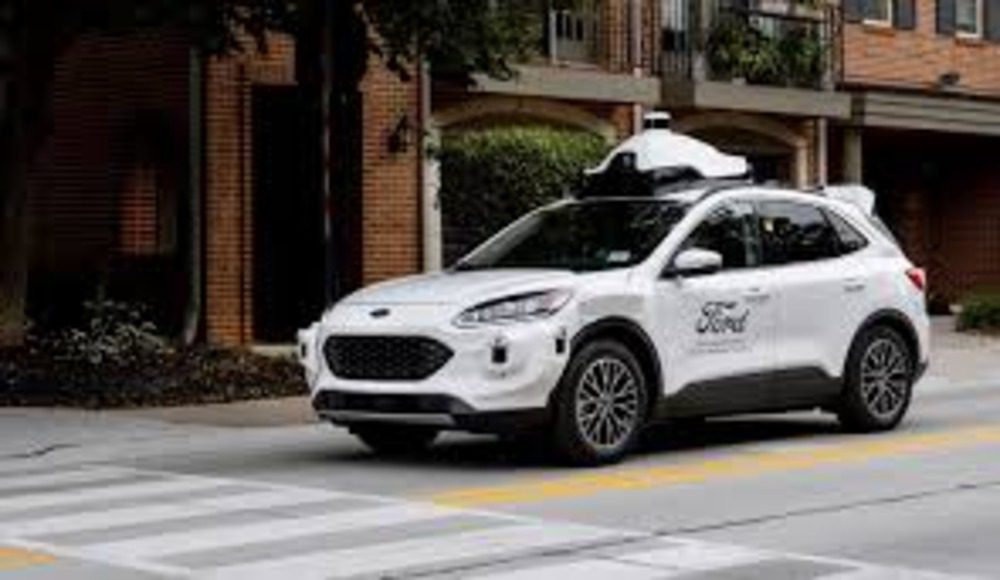
Argo AI is backed by Volkswagen and Ford, which develops self-driving technology for multiple applications. It was founded in 2016 by Bryan Salesky, the former expert hardware developer for Google’s autonomous vehicles. Argo has had testing in Miami, Austin, and Washington, DC. Unfortunately, the company sees autonomous vehicles as a “long way off,” which brings the company to shut down in 2022.
8. Motional
Motional, a joint venture between Hyundai and Aptiv, is dedicated to making autonomous taxis and delivery services a reality. Leveraging decades of expertise in driverless technology, Motional focuses on creating safe, reliable, and enjoyable driverless vehicles. Their autonomous cars are designed to prevent tired, drunk, or distracted driving, ensuring safety from point A to B. Motional’s team, skilled in engineering, robotics, machine learning, and AI, is building fully driverless vehicles for seamless integration into mobility networks for ride-hailing and delivery services.
9. Pony.AI
Pony.ai operates in China and the US, targeting robotaxis and autonomous trucking. They have developed a robust autonomous driving technology, accumulating millions of kilometers in road testing. Their core technology, the “virtual driver,” is central to their three business units: Robotaxi, Robotruck, and Personally Owned Vehicles (POV). Their multi-sensor fusion approach and advanced Perception, Prediction, and Planning modules ensure precise localization and safe navigation in complex road scenarios. Pony.ai aims to deliver reliable and scalable autonomous driving solutions across various industries.
10. Nuro
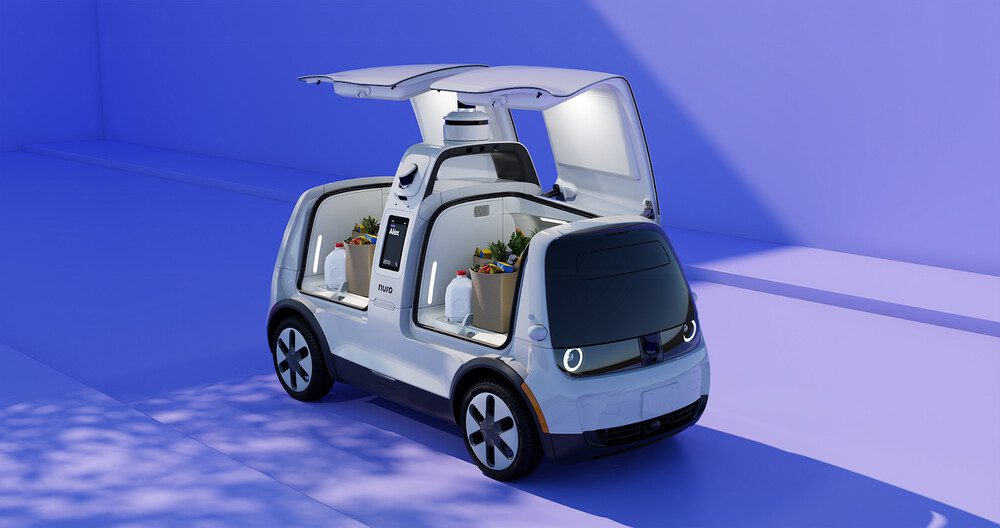
Nuro focuses on autonomous delivery with its small, unmanned vehicles, optimized for transporting goods. Powered by the Nuro Driver™, their cutting-edge AI software, and custom-built sense and compute systems ensure safe and efficient operation. Nuro has successfully deployed its driverless vehicles across three states. Their AI-driven system continuously learns and improves through data, while redundant systems and a backup autonomy stack enhance safety. Nuro’s technology leverages scalable mapping and AI-first software for perception, behavior, and robust localization in real-world scenarios.
You may like

Offering customers multiple payment solutions is another way to make them choose you over your competitors. Since the world has started this online shift to everything, people prefer convenience via mobile phones. Mobile payment solutions make shopping and paying effortless. If you’re wondering what online payment systems you can offer, we’ve listed the top mobile payment options in this article.
What is a Mobile Payment Solution?

A mobile payment solution is a payment system people use on their mobile phones. They use smartphones or other cellular phones to pay for products or services. It’s a more convenient, efficient, and faster payment solution since you no longer have to bring cash or change customers’ payments. This type of payment option also means customers pay directly to your account, allowing you to transfer the funds to your bank if the app permits.
These mobile phones will require the corresponding app or software to enable mobile payment solutions. Some are also done via SMS, depending on the network. Some apps also require users to connect their credit or debit card so people can use the app to pay, and the funds are deducted from the credit card. These apps are called “peer-to-peer” mobile payment apps.
What are the 5 Types of Mobile Payment Systems?

Business owners can choose from five payment options. While each solution is unique, all alternatives offer a convenient way of transferring money from end to end.
1. SMS payments
SMS payments refer to payments made through your local cellular network to another. This means a user transfers money by sending it through another person’s number. In most cases, this is only used locally since most can’t transfer from one mobile number to an international mobile number.
2. Mobile wallet
This is another common form of mobile payment. To make a mobile payment, apps like Samsung Pay, Apple Pay, or Google Pay must be installed on portable gadgets like tablets, smartphones, smartwatches, or computers. Most of these apps are linked to credit cards, debit cards, or bank accounts.
3. Mobile peer-to-peer
A mobile peer-to-peer payment system is another efficient solution if you cater to global customers. Some examples are PayPal, CashApp, and Venmo, and most of these accept all business retailers, big or small.
4. Mobile eCommerce
Mobile eCommerce is also the most commonly used online payment system. This is when a user makes a transaction online from a browser or a seller’s app or webpage and completes the transaction by inputting their credit card details. Users who pay from a mobile wallet or accelerated checkout systems like Shop Pay are also under the umbrella of mobile eCommerce.
5. Mobile POS (Point of sale)
This payment type refers to paying for products or services using your credit card by swiping it on a terminal or chip reader. You can also use your mobile phone by tapping it on the terminal via QR codes.
Benefits of Mobile Payments

Most businesses accept mobile payments nowadays due to their security and convenience. While paying cash offers a more secure transaction since you only have to hand the cash to the cashier, online app payments are equipped with robust security measures. On top of that, here are some benefits of mobile payment solutions:
- Security: Mobile payments require authentication to proceed. This can be done via passcodes, OTPs, fingerprints, or facial recognition.
- Speed: Mobile payments can be made in the blink of an eye, making mobile checkout or online shopping easier.
- Convenience: Customers prefer mobile payments because they no longer have to bring cash or find the nearest ATM to withdraw. All they need is connectivity and their portable gadgets.
- Popular: Your business shouldn’t lag behind competitors. It’s no surprise that more and more brands are expanding their online payment systems. Mobile payments are beneficial, especially if your audience is younger.
8 Top Mobile Payment Systems

Here are the eight best mobile payment systems you can look into.
1. Apple Pay
Apple Pay would be appropriate for Apple devices. You can make contactless payments when you make in-app purchases. Apple Pay uses a unique account number, and customers get a security code for every transaction.
2. Google Pay
Android users can also pay via Google Pay. You can pay via NFC in-store, online, or within apps. Google Pay integrates with most Google apps, letting users enjoy loyalty card management, ticket storage, and money transfers.
3. Samsung Pay
Samsung Pay is suitable for both NFC transfers and magnetic stripe terminals. This payment mode is also secured with tokenization, biometrics, and Samsung Knox.
4. PayPal
PayPal is another online payment system that allows peer-to-peer money transfers. It’s easy to send, receive, and manage transactions with PayPal. PayPal also links with credit cards and bank accounts and is mainly linked to various eCommerce websites.
5. Venmo
Owned by PayPal, Venmo is another mobile payment system for peer-to-peer transfers. It works similarly to PayPal and lets users buy, sell, and hold cryptocurrencies.
6. Zelle
If you’re from the U.S., Zelle is the app for sending money between bank accounts. This platform is integrated into most U.S. mobile banking apps. It lets you send money instantly using a mobile phone number or email.
7. Square Cash
Also known as the Cash App, Square lets you send and receive money and even invest in stocks and Bitcoin.
8. Alipay
This mobile payment system is for online payments, financial services, and in-store purchases. Alipay is also widely used in China. Users link their credit, debit, and bank accounts to make payments through NFC, QR codes, or in-app purchases.
Technology
Tech Layoff from the Top Tech Companies in 2024
Published
7 months agoon
August 14, 2024By
Kai Kelis
While tech companies exhibited their hiring spree during the pandemic to meet online demand, this year leans toward workforce reduction. Most tech juggernauts are looking at AI initiatives for some work processes. This begs the question—are tech experts’ skills in danger of being replaced by faster and more cost-efficient AI tools and platforms? Even the tech tycoon Google continues to lay off thousands of employees. And while tech experts and professionals enjoy Google’s office amenities, these tech layoffs make them ponder: How long will this enjoyment last? Here are some of the top tech company layoffs in 2024.
1. Dell

Dell Technologies, a computer manufacturer, has laid off about 12,500 employees, constituting 10 percent of the company’s workforce. The company claims it’s part of a “sales and marketing reorganization” that will center on AI services. But this isn’t the first time the company has had a significant layoff. They also cut off about 6,000 workers last February 2023. This restructuring intends to streamline operations and processes, boosting efficiency. This way, the brand can evolve and adapt to a changing and growing market.
Research Chief Analyst Dave Vellante said, “It’s unlikely the number is that high because that would typically trigger an SEC filing.”
2. Intel
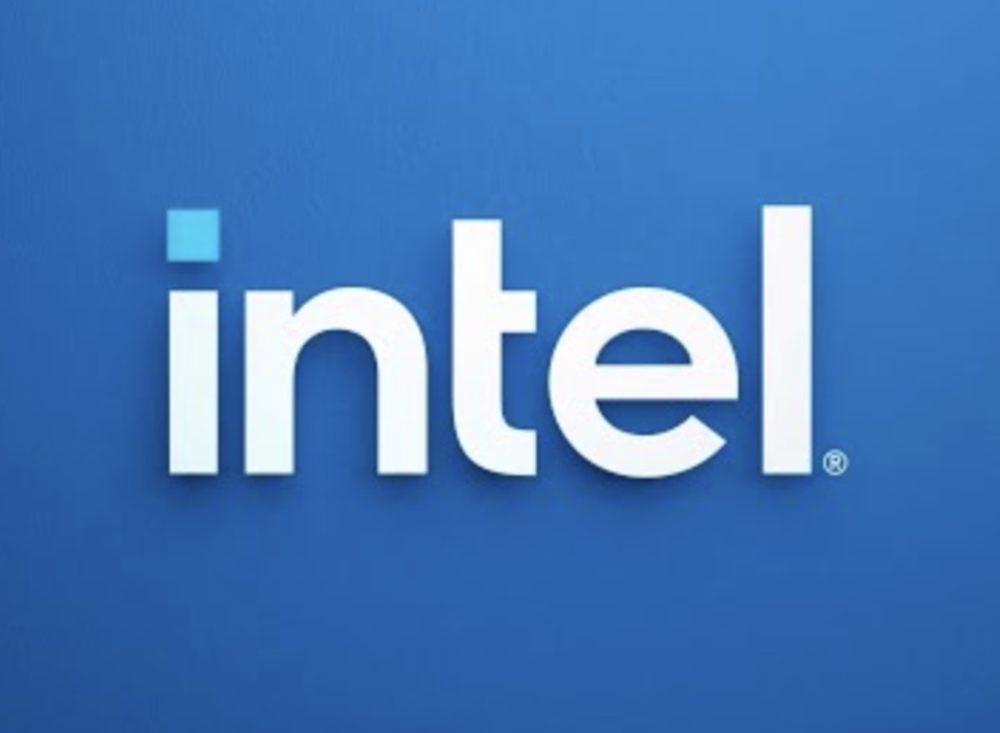
Intel embarked on a cost-saving plan, a good move for the company in 2025. However, this will mean job losses for 15 percent of its workforce. Laying off about 15,000 employees will save the company $10 billion in 2025. While it’s the estimated number, it may go up to 19,000 out of Intel’s 125,000 employees. The company representatives said it would restructure to stop “non-essential work.” Although the company hit product milestones in Q2 this year, they are still down in the mouth over the loss of $1.6 billion by the end of Q2.
Representatives said they will “reduce layers, eliminate overlapping areas of responsibility, stop non-essential work.”
3. Qualcomm
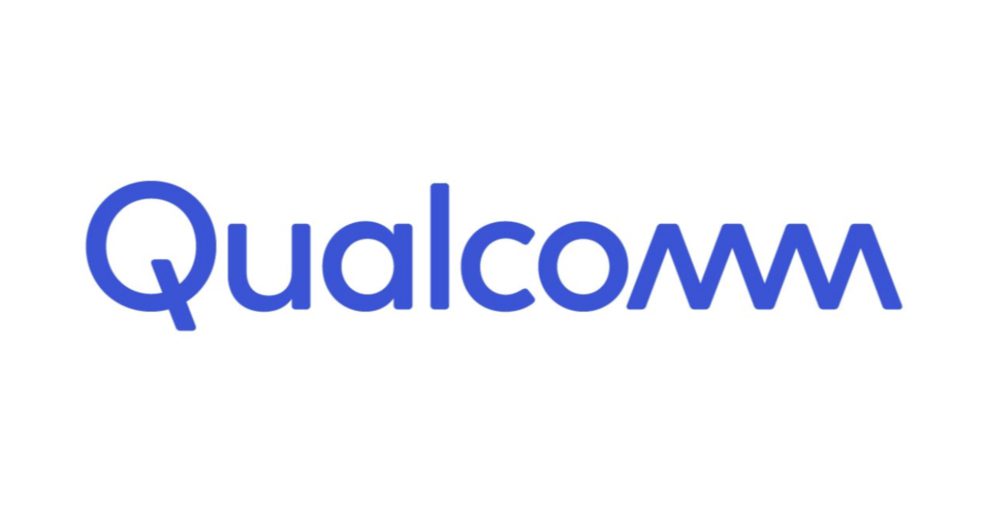
Qualcomm, a company that manufactures software, semiconductors, and other services that pertain to wireless technology, plans to lay off 1,258 employees by December of this year. These employees will mostly be in their Santa Clar and San Diego branches. The company will cut off positions like analysts, software developers, engineers, legal, finance, and human resources. Qualcomm had a 23 percent drop in revenue and a 52 percent drop in net income during Q2 this year.
Palkhiwala said, “Until we see sustained signs of improving fundamentals, our operating framework does not assume an immediate recovery.”
4. Jam City

Jam City is a video game developer and publisher also in for the 2024 tech layoffs. The company has reported to cut 85 employees. And while this number isn’t as shocking as the others on this list, it constitutes 10 percent of their workforce. This is also the second time the game developer laid off its employees, with its first in 2022, letting go of 17 percent of its workforce. Jam City is the genius behind games such as Disney Emoji Blitz, Jurassic World Alive, and DC Heroes and Villains. Some gaming analysts predict an upward trend for this niche in 2024.
However, Jam City CEO said, “While we have seen moderate improvements in some areas, the overall upward trend has not materialised as expected.”
5. Microsoft
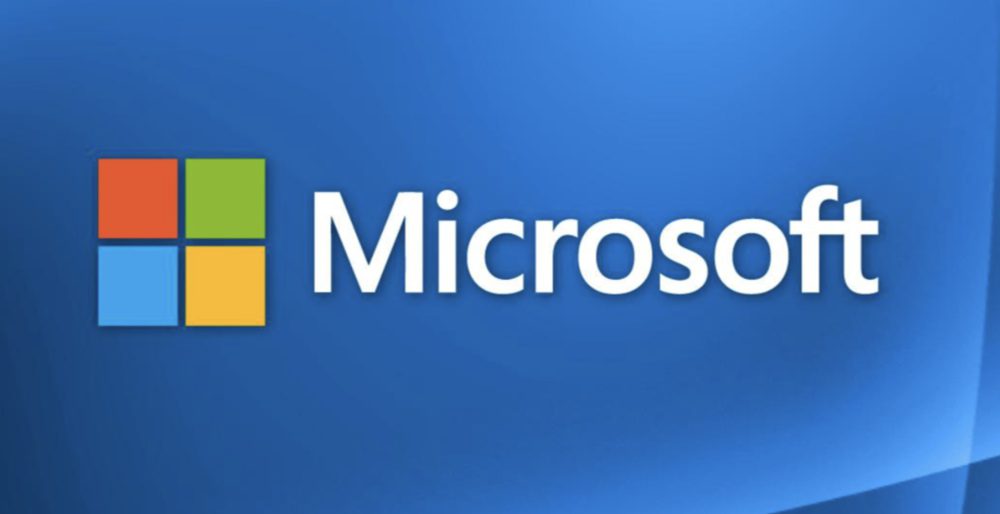
Microsoft also swooped another round of layoffs in multiple departments from various locations. Although the company didn’t disclose the exact number of layoffs, these employees included roles in program and product management. The company confirms this is part of the “regular organizational adjustments” to focus on strategic growth areas. This isn’t the first time the tech company has done a significant layoff. They also cut off around 2,000 employees in January 2024, particularly in the gaming departments, HoloLens, and Azure Cloud divisions.
A Microsoft representative stated, “Organizational and workforce adjustments are a necessary and regular part of managing our business.”
6. EBay

The online shopping brand eBay is also joining the layoffs this year. EBay is cutting off around a thousand employees, accounting for nine percent of its full-time workforce. Jamie Iannone, eBay CEO, announced these changes, stating that the brand is prioritizing more sustainable long-term growth. He said that the number of employees and expenses outpaced the company’s growth. He also noted that employees were encouraged to work from home, so they have the needed space during this challenging period.
CEO and President Jamie Iannone said, “We have to say goodbye to people who have made so many important contributions to the eBay community and culture, and this isn’t easy.”
7. Twitch

Another popular live-streaming platform, Twitch, joins the tech layoffs bandwagon. Amazon’s Twitch cuts 35 percent of its employees, resulting in hundreds of employees scrambling to find job replacements. Twitch CEO Dan Clancy announced that it would have to cut off over 500 people across all departments and claims this is for sustainability in business operations. Although Twitch earns from multiple revenues, such as ads and subscriptions, it’s reported that the company is still unprofitable for nine years.
Clancy stated, “Unfortunately, we still have work to do to rightsize our company, and I regret having to share that we are taking the painful step of reducing our headcount by just over 500 people across Twitch.”
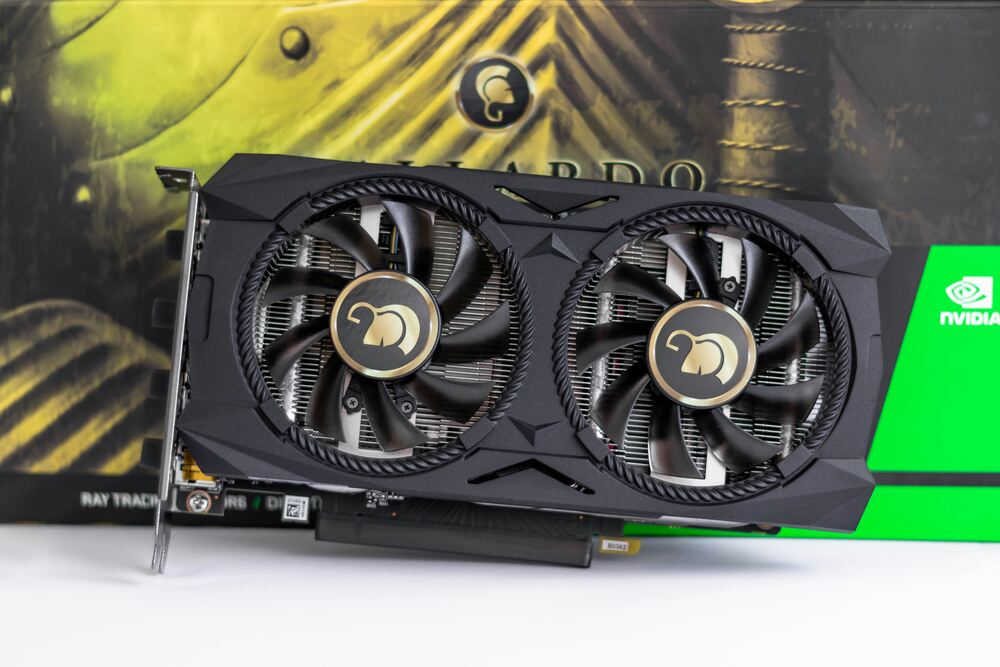
If you’re an avid gamer, setting up or buying a gaming PC will make games more enjoyable. Whether you play esports professionally or not, getting the right equipment suitable for your preference is critical to seamless gaming. If you’re unsure where to start, we’ve made a list of the top 10 best gaming PCs you must check out.
1. Corsair One i500
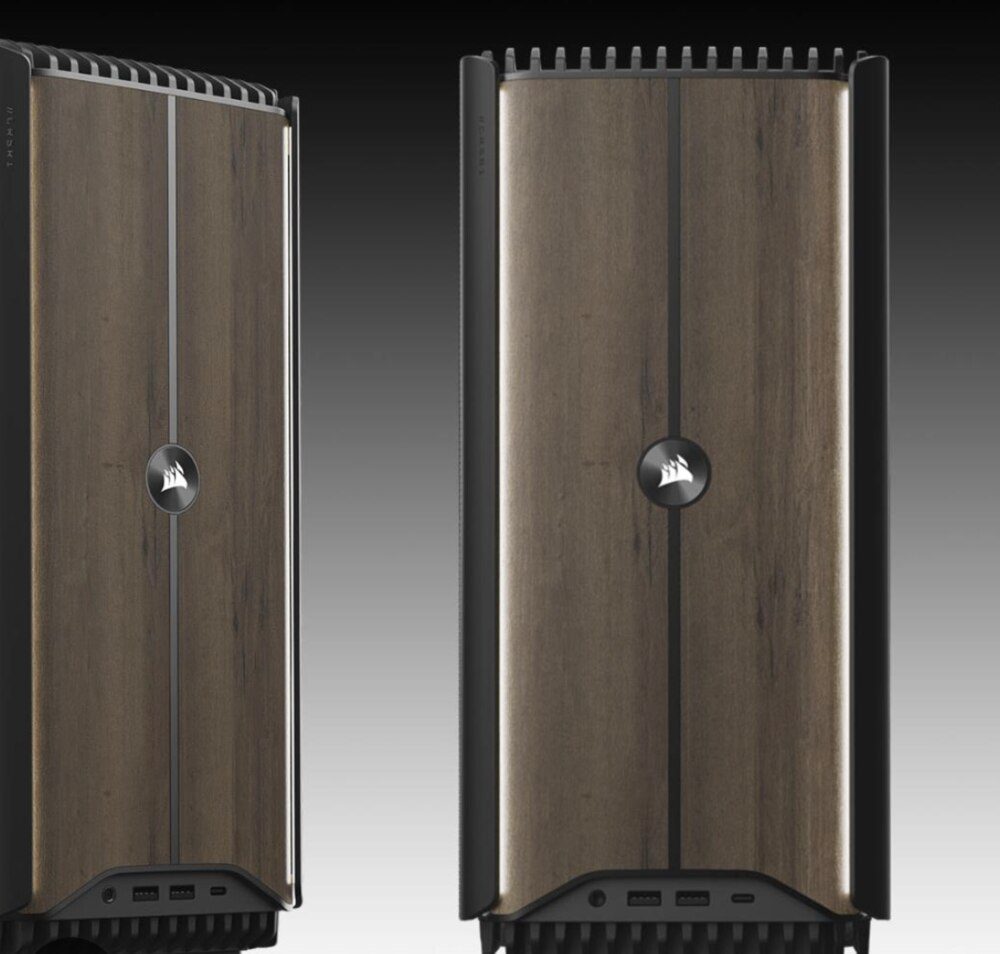
The Corsair One i500 leans more on the higher-end spectrum, with a sleek wooden front panel and stylish fabric side panels. The Corsair One i500 is a high-end gaming PC with power and an elegant, compact design. It features an Intel Core i9-14900K, Nvidia RTX 4090, 32GB DDR5 RAM, and a 2TB NVMe SSD. Its custom AIO liquid cooling keeps things calm and quiet. With an 850W 80 Plus Platinum power supply, RGB lighting, VR readiness, and plenty of connectivity options, it’s perfect for gamers and pros alike. Upgrading RAM and SSD is easy, though CPU and GPU upgrades are trickier.
2. HP Victus 15L
Looking for a budget-friendly gaming PC with impressive specs like an Intel Core i7-13700, Nvidia RTX 3060, up to 32GB DDR4 RAM, and a 1TB NVMe SSD + 2TB HDD combo? Running Windows 11 Home, the HP Victus 15L has a 500W power supply and efficient cooling. Its compact, sleek design fits easily into any setup. With customizable configurations, VR readiness, and easy upgrades, it’s a great choice for gamers seeking good performance without breaking the bank. It runs quietly and has customizable RGB lighting for that stylish touch.
3. Acer Predator Orion 7000
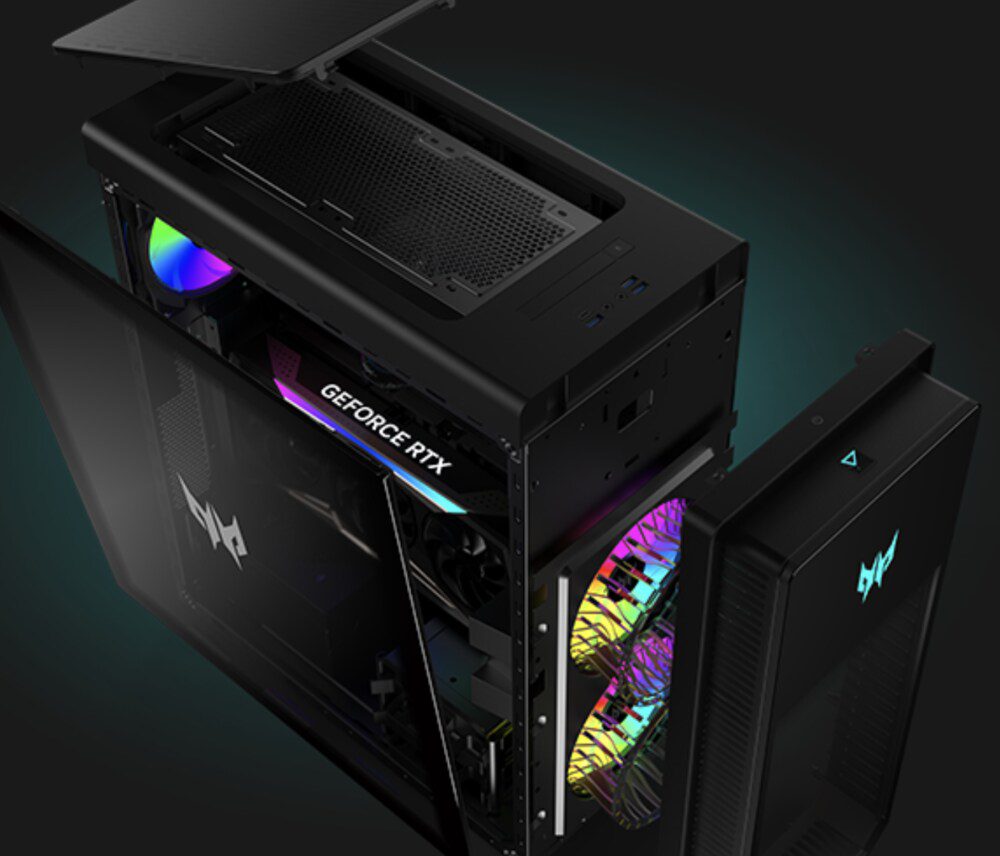
The Acer Predator Orion 7000 is a high-end gaming PC that packs a serious punch with specs like a 13th Gen Intel Core i9, Nvidia RTX 4090, and up to 64GB DDR5 RAM. It offers loads of storage with a 2TB NVMe SSD and 2TB HDD, all running on Windows 11 Home. Its advanced cooling system, upgradeable design, and customizable RGB lighting make it a gamer’sgamer’s dream. Plus, with excellent connectivity options and DTS Ultra audio, it’s perfect for immersive gaming sessions and virtual reality. Its futuristic design makes it pop in any setup!
4. Alienware Aurora R16
This top-notch gaming PC pairs powerful specs with a sleek, modern design. It features a 13th Gen Intel Core i9-13900KF, Nvidia RTX 4090, up to 64GB DDR5 RAM, and up to 4TB NVMe SSD storage. Running Windows 11 Home with a 1350W Platinum PSU, it delivers outstanding gaming performance. Its advanced cooling, tool-less upgradeable design, customizable RGB lighting, and versatile connectivity make it a gamer’sgamer’s dream. With VR readiness and superior audio, it’s perfect for serious gamers.
5. iBuyPower Y60
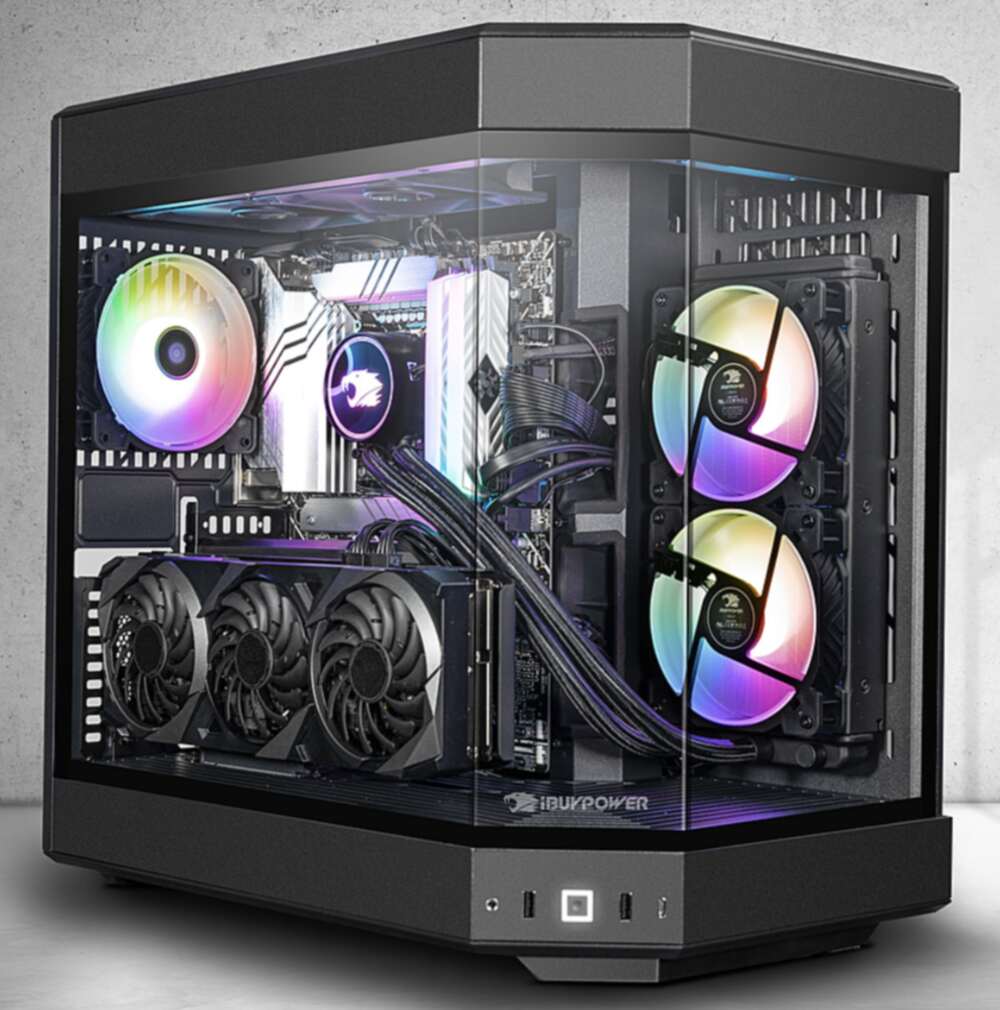
Nothing beats a favorite among gamers for its top-notch performance and sleek design. The iBuyPower Y60 gaming PC boasts an Intel Core i9-13900K or AMD Ryzen 9 7950X, Nvidia RTX 4090 or AMD Radeon RX 7900 XTX, and up to 64GB DDR5 RAM. With up to 2TB NVMe SSD + 2TB HDD storage, it runs Windows 11 Home on a 750W to 1000W PSU. Featuring advanced cooling, customizable RGB lighting, VR readiness, and premium build quality, it’s perfect for serious gaming and easy upgrades.
6. MSI Infinite RS 13th
The MSI Infinite RS 13th is a beastly gaming PC packed with up to a 13th Gen Intel Core i9-13900K and Nvidia GeForce RTX 4090, paired with up to 64GB DDR5 RAM. It offers tons of storage with a 2TB NVMe SSD and 4TB HDD, running Windows 11 Home on a 1000W 80 Plus Gold PSU. With advanced cooling, customizable RGB lighting, and easy tool-less upgrades, it’s perfect for high-performance gaming. It’s VR-ready, boasts great sound with Nahimic 3D, and has a stylish design with a glass side panel.
7. Maingear MG-1 Silver
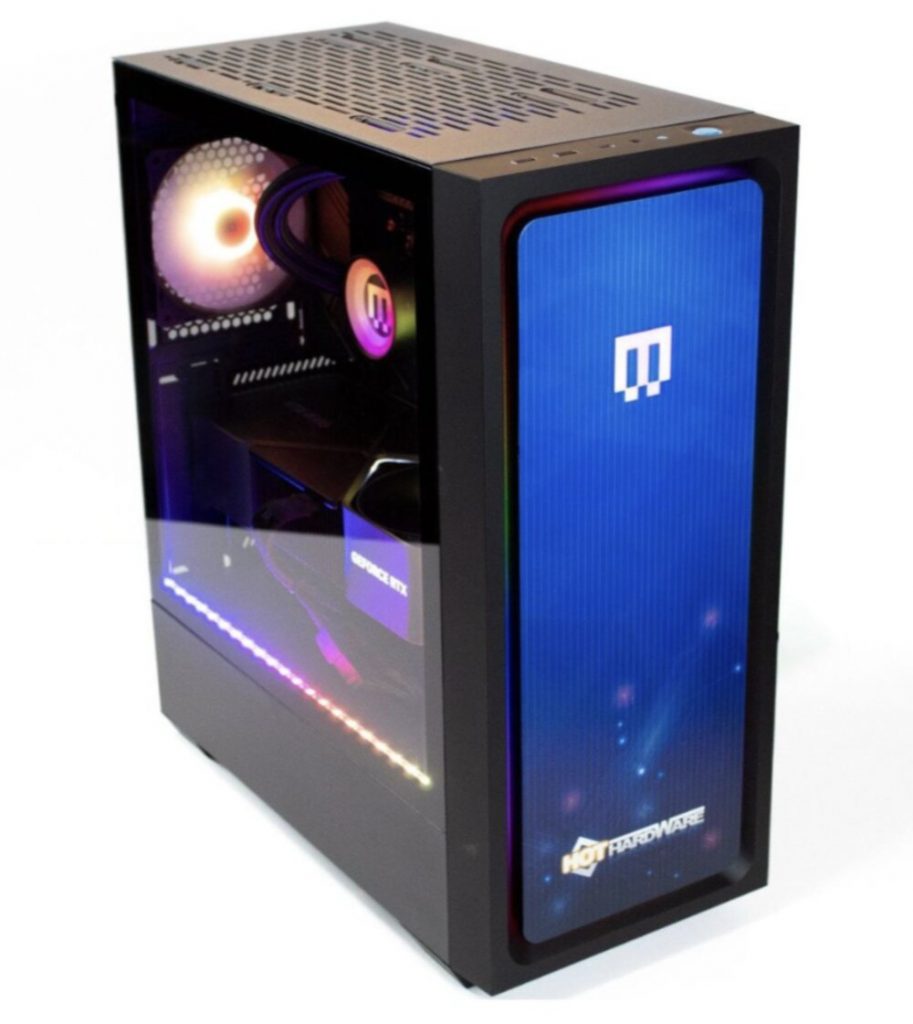
This is a solid mid-range gaming PC that offers strong build quality and professional assembly. It features an Intel Core i5-13400F CPU, PNY GeForce RTX 4060 GPU, and 16GB of RAM, delivering exemplary performance for its price. This compact system includes customizable RGB lighting and a magnetic front panel. It’s a great choice with 512GB NVMe SSD storage, efficient cooling, and quiet operation. While it could use better dust protection and a faster SSD, it’s neatly built and bloatware-free. The Shroud Edition adds cool faceplates for an extra $100.
8. Alienware Aurora Ryzen Edition R14
The Alienware Aurora Ryzen Edition R14 is a high-performance gaming PC featuring an AMD Ryzen 9 5900X processor and Nvidia GeForce RTX 3080 Ti GPU. It boasts 32GB of DDR4-3466 RAM and a 1TB SSD, ensuring smooth multitasking and fast storage. The sleek, mid-tower design includes options for liquid cooling and various power supplies. With Wi-Fi 6, Bluetooth 5.2, and running Windows 11 Pro, it offers a modern user experience. While it performs well and looks great, it’s pricey and can get noisy under load.
9. CyberPowerPC Gamer Xtreme VR
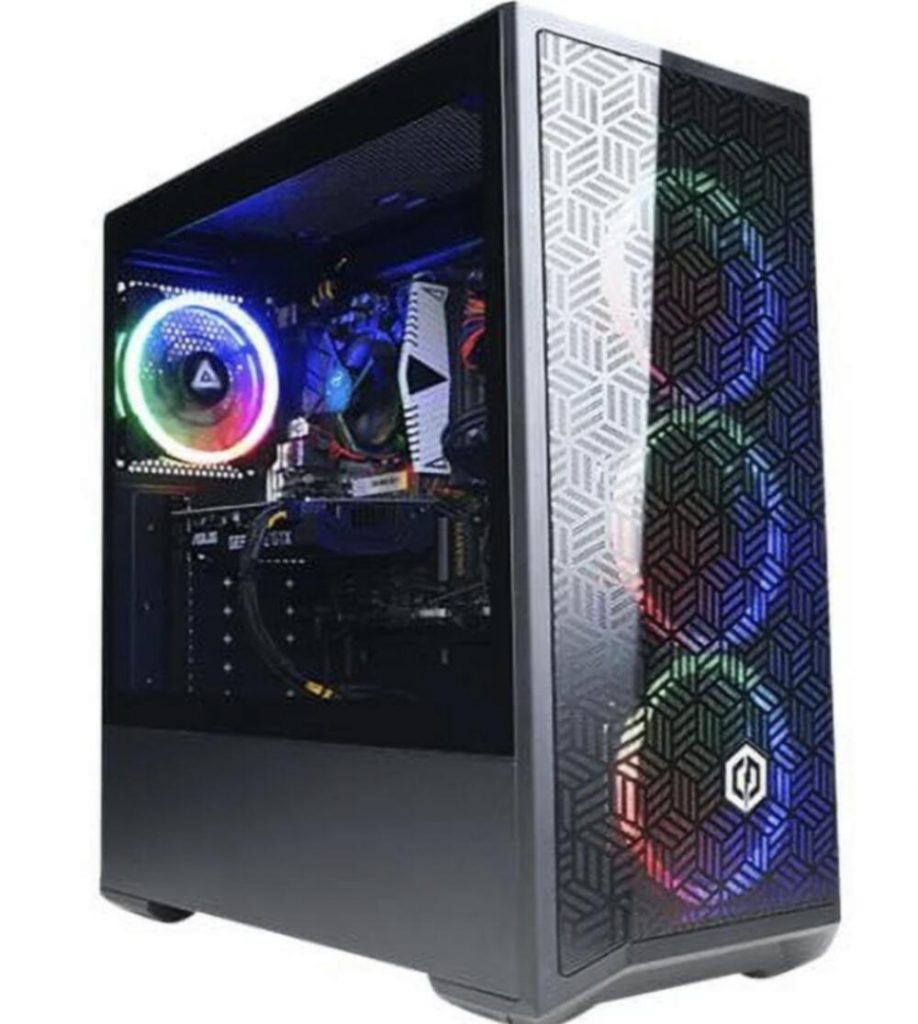
Look no further if you want a powerful, sleek gaming PC, perfect for gamers. The CyberPowerPC Gamer Xtreme VR features an Intel Core i7-13700F or i9-13900KF CPU, NVIDIA GeForce RTX 4060 Ti or 4070 GPU, 16GB DDR5 RAM, and a 1TB NVMe SSD. Running Windows 11 Home, it offers Wi-Fi 6, Bluetooth 5.0, and multiple USB ports. It delivers high performance and cool operation with optimized airflow, customizable RGB lighting, and VR readiness. Ideal for modern gaming and VR, it’s a top choice without breaking the bank.
10. Asus ROG Strix GA35
The Asus ROG Strix GA35 is a powerhouse gaming PC perfect for demanding tasks. It features an AMD Ryzen 9 7950X or Ryzen 7 7800X3D processor and top-tier NVIDIA GeForce RTX 4090 or 4080 graphics. With 32GB DDR5 RAM (expandable to 64GB) and a 1TB NVMe SSD, it offers fast performance and ample storage. The custom liquid cooling ensures efficient heat management, while the sleek design boasts customizable RGB lighting. With Wi-Fi 6E, Bluetooth 5.3, and easy upgrade options, it’s a top choice for serious gamers and professionals.

Digital Nomads Flock To These 10 Amazing Tax-Free Cities

Adopting a Cat? Here’s Your 5-Item Starter Kit

Discover 2025’s Top 10 Online Banks for Smart Savings

The Latest In The AI Boom: What Entrepreneurs Need To Know In 2025

Taylor Swift’s Fortune: The Billionaire Behind The Eras Tour

8 Popular Mobile Payment Systems

